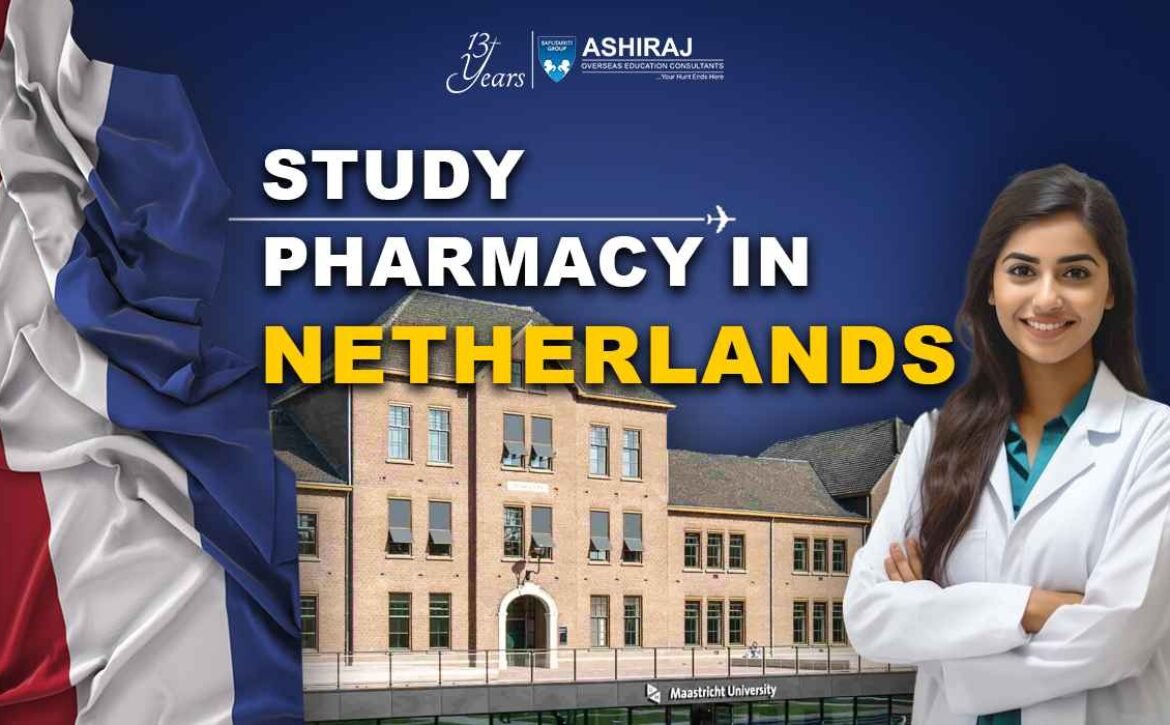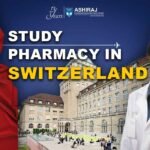
Pharmacy in Netherland
Pharmacy in the Netherlands is an integral component of the nation’s healthcare system, renowned for its high standards and accessibility. With a focus on patient care and community health, pharmacies in the Netherlands play a pivotal role in providing essential medications and healthcare advice to the population. The Dutch pharmacy landscape encompasses a mix of independently owned pharmacies and chain pharmacies, ensuring widespread coverage across urban and rural areas. Pharmacists in the Netherlands are highly trained professionals, often offering specialized services such as medication reviews, vaccinations, and health screenings, contributing significantly to public health initiatives.
Pharmacy in the Netherlands is characterized by its adherence to strict regulations and quality standards, ensuring the safety and efficacy of medications dispensed to patients. The Dutch government closely regulates the pharmaceutical sector, fostering transparency and accountability within the industry. Pharmacists in the Netherlands are not only responsible for dispensing prescriptions but also for providing comprehensive medication management and counseling to patients. This emphasis on patient education and empowerment underscores the commitment of Dutch pharmacies to promote wellness and improve healthcare outcomes. With its focus on excellence and innovation, pharmacy in the Netherlands continues to evolve, striving to meet the diverse healthcare needs of its population.
Why to Study Pharmacy in Netherlands?
- Global Reputation: Pharmacy education in the Netherlands is highly esteemed worldwide, offering top-notch academic programs recognized for their quality and innovation.
- Multilingual Environment: Many pharmacy programs in the Netherlands are taught in English, making it an attractive destination for international students seeking a diverse and inclusive learning environment.
- Cutting-edge Research: The Netherlands is renowned for its contributions to pharmaceutical research and development, providing students with opportunities to engage in groundbreaking research projects and collaborate with industry experts.
- Practical Experience: Pharmacy programs in the Netherlands emphasize hands-on learning through internships and practical training in community pharmacies, hospitals, and research labs, equipping students with real-world skills and experience.
- Global Career Opportunities: Graduates of Dutch pharmacy programs are highly sought after in the global job market, with opportunities for employment in various sectors such as healthcare, academia, research, and pharmaceutical industry.
- Cultural Immersion: Studying pharmacy in the Netherlands offers students the chance to immerse themselves in Dutch culture, explore vibrant cities, and experience a high quality of life in one of Europe’s most progressive countries.
- Networking Opportunities: The Netherlands is home to a thriving pharmaceutical industry and numerous international pharmaceutical companies, providing students with valuable networking opportunities and connections for future career advancement.
- Innovative Curriculum: Dutch pharmacy programs feature innovative curricula that integrate the latest advancements in pharmaceutical science, technology, and healthcare delivery, ensuring students are well-prepared to meet the evolving needs of the profession.
Top Universities to Study Pharmacy in Netherlands
University | QS World University Rankings 2023 | Type of University | Average Annual Fees | Programs Offered |
University of Amsterdam | 35 | Public | €2,168 – €4,336 | Bachelor’s in Pharmacy, Master’s in Pharmacy, PhD in Pharmaceutical Sciences |
Utrecht University | 45 | Public | €2,168 – €4,336 | Bachelor’s in Pharmaceutical Sciences, Master’s in Drug Innovation, PhD in Pharmacy |
Leiden University | 63 | Public | €2,168 – €4,336 | Bachelor’s in Pharmacy, Master’s in Pharmacy, PhD in Pharmaceutical Sciences |
Erasmus University Rotterdam | 71 | Public | €2,168 – €4,336 | Bachelor’s in Pharmacy, Master’s in Pharmacy, PhD in Drug Development |
Groningen University | 80 | Public | €2,168 – €4,336 | Bachelor’s in Pharmacy, Master’s in Pharmacy, PhD in Pharmaceutical Sciences |
Studying pharmacy in the Netherlands offers students access to some of the world’s top-ranked universities renowned for their excellence in pharmaceutical education and research. Here are the top 5 universities in the Netherlands for pharmacy, based on the QS World University Rankings 2023:
- University of Amsterdam: Ranked 35th globally, the University of Amsterdam offers a range of programs including Bachelor’s and Master’s degrees in Pharmacy, along with opportunities for PhD research in Pharmaceutical Sciences.
- Utrecht University: Ranked 45th globally, Utrecht University provides programs such as Bachelor’s in Pharmaceutical Sciences, Master’s in Drug Innovation, and PhD in Pharmacy, focusing on cutting-edge research and innovation.
- Leiden University: Ranked 63rd globally, Leiden University offers Bachelor’s and Master’s programs in Pharmacy, as well as a PhD in Pharmaceutical Sciences, emphasizing interdisciplinary approaches to pharmaceutical research.
- Erasmus University Rotterdam: Ranked 71st globally, Erasmus University Rotterdam offers Bachelor’s and Master’s degrees in Pharmacy, along with a PhD program in Drug Development, providing students with a comprehensive education in pharmaceutical sciences.
- Groningen University: Ranked 80th globally, Groningen University offers Bachelor’s and Master’s programs in Pharmacy, as well as a PhD program in Pharmaceutical Sciences, with a focus on research-led teaching and practical experience in the field.
Course Curriculum for Pharmacy in Netherlands
- Comprehensive Foundation: The pharmacy curriculum in the Netherlands provides students with a solid foundation in pharmaceutical sciences, including courses in chemistry, biology, and pharmacology, essential for understanding drug mechanisms and interactions.
- Patient Care Focus: Emphasizing patient-centered care, the curriculum includes coursework in clinical pharmacy, pharmacotherapy, and pharmaceutical care, equipping students with the skills to provide personalized medication management and counseling.
- Practical Training: Pharmacy programs in the Netherlands incorporate hands-on training through internships and clinical rotations in community pharmacies, hospitals, and healthcare settings, allowing students to apply theoretical knowledge in real-world scenarios.
- Research Opportunities: Students have the opportunity to engage in research projects and thesis work under the guidance of faculty mentors, exploring topics such as drug discovery, pharmacokinetics, and pharmaceutical technology.
- Interdisciplinary Approach: The curriculum encourages interdisciplinary collaboration, with courses integrating concepts from pharmacy, medicine, and healthcare management, preparing students for diverse career paths in the pharmaceutical industry, academia, and clinical practice.
- Continuous Learning: Pharmacy education in the Netherlands promotes lifelong learning and professional development, with opportunities for further specialization through postgraduate studies and continuing education programs, ensuring graduates remain at the forefront of advancements in the field of pharmacy.
Eligibility Criteria & Admission Requirements for MS in Pharmacy in Netherlands
- Language Proficiency: Applicants must demonstrate proficiency in English by providing scores from either the IELTS or TOEFL exams. A minimum score of 6.5 in IELTS or 90 in TOEFL is typically required.
- Standardized Tests: Some universities may require applicants to submit scores from either the GRE or GMAT exams as part of the admission process. The minimum scores vary by institution, but competitive scores are generally expected.
- Academic Certificates: Applicants are typically required to provide academic transcripts and certificates, including proof of secondary education and any previous higher education qualifications.
- Work Experience: While not always mandatory, relevant work experience in healthcare or pharmaceutical-related fields may strengthen an applicant’s candidacy and provide valuable insights into the profession.
- Passport & Student Visa: International students must possess a valid passport and obtain a student visa to study in the Netherlands. The visa application process may require proof of acceptance into a recognized educational institution and sufficient financial means to support oneself during study.
IELTS or TOEFL scores:
Exam | Minimum Score |
IELTS | 6.5 |
TOEFL | 90 |
GRE or GMAT scores:
Exam | Minimum Score |
GRE | Varies |
GMAT | Varies |
Meeting the eligibility criteria is essential for prospective students wishing to pursue pharmacy studies in the Netherlands, ensuring they have the necessary language proficiency, academic background, and documentation to embark on their educational journey.
Documents Required for Studying Pharmacy in Netherlands
- Passport: A valid passport is necessary for international students applying to pharmacy programs in the Netherlands. It serves as proof of identity and nationality throughout the application process.
- Letters of Recommendation (LOR): Most universities require two letters of recommendation from academic or professional referees who can attest to the applicant’s abilities, character, and suitability for the pharmacy program.
- Statement of Purpose (SOP): An SOP outlines the applicant’s academic background, career goals, and reasons for choosing pharmacy as a field of study. It allows admissions committees to assess the applicant’s motivation and potential contribution to the program.
- Curriculum Vitae (CV): A comprehensive CV provides a detailed overview of the applicant’s academic qualifications, work experience, extracurricular activities, and relevant skills, aiding admissions committees in evaluating the applicant’s suitability for the program.
- Official High School Transcripts and Certificates: Applicants must submit official transcripts and certificates from their high school or secondary education institution, demonstrating their academic performance and completion of prerequisite coursework.
- Work Experience Certificate: If applicable, applicants should provide a work experience certificate detailing any relevant professional experience in healthcare, pharmaceuticals, or related fields, highlighting their practical knowledge and skills.
- Proof of Financial Resources: International students must demonstrate sufficient financial resources to cover tuition fees, living expenses, and other costs associated with studying in the Netherlands. This may include bank statements, scholarship awards, or sponsorship letters.
Ensuring the timely submission of these documents is crucial for prospective students seeking admission to pharmacy programs in the Netherlands, facilitating a smooth application process and increasing the likelihood of acceptance.
Admission Process for Pharmacy in Netherlands
- Research Universities: Begin by researching universities in the Netherlands offering pharmacy programs, considering factors such as reputation, curriculum, and location.
- Check Eligibility: Review the eligibility criteria for each university, ensuring you meet the academic, language proficiency, and standardized test requirements.
- Prepare Documents: Gather required documents including passport, academic transcripts, letters of recommendation, statement of purpose, curriculum vitae, and proof of financial resources.
- Language Proficiency: Take either the IELTS or TOEFL exam and achieve the minimum required score to demonstrate proficiency in English.
- Standardized Tests: If required, take either the GRE or GMAT exam and achieve competitive scores as specified by the university.
- Submit Application: Complete the online application for your chosen universities, ensuring all required documents are accurately submitted before the deadline.
- Pay Application Fee: Pay the application fee as specified by each university to process your application.
- Wait for Decision: Await the admission decision from the universities. This may take several weeks to months depending on the institution’s review process.
- Acceptance and Enrollment: Upon receiving acceptance letters, choose the university you wish to attend and follow the enrollment procedures outlined by the institution.
- Student Visa: Apply for a student visa to study in the Netherlands, providing all necessary documents including acceptance letters and proof of financial means.
Following these steps diligently will help navigate the admission process smoothly and increase your chances of securing admission to a pharmacy program in the Netherlands.
“Education is the most powerful weapon which you can use to change the world.”
Nelson Mandela
Cost of Pharmacy Course in Netherlands
- Tuition Fees: The cost of tuition for pharmacy programs in the Netherlands varies depending on the university and level of study. On average, annual tuition fees for international students range from €2,000 to €4,000.
- Living Expenses: In addition to tuition fees, students must budget for living expenses such as accommodation, food, transportation, and personal expenses. Living costs in the Netherlands are estimated to be around €800 to €1,200 per month.
- Health Insurance: International students are required to have health insurance while studying in the Netherlands. The cost of health insurance varies but is typically around €80 to €100 per month.
- Books and Supplies: Budget for textbooks, course materials, and other supplies required for pharmacy coursework. This cost can vary depending on the specific program and courses.
- Miscellaneous Fees: Be prepared for additional expenses such as application fees, residence permit fees, and other administrative costs associated with studying abroad.
- Scholarship Opportunities: Explore scholarship opportunities offered by universities, government organizations, and private institutions to help offset the cost of studying pharmacy in the Netherlands.
Understanding the cost of studying pharmacy in the Netherlands is essential for international students planning to pursue higher education in the country. By budgeting effectively and exploring financial aid options, students can make informed decisions about their education and minimize financial burden.
Scholarships for Pharmacy Courses in Netherlands
Scholarship Name | Amount | Application Deadline |
Holland Scholarship | Up to €5,000 per year | Varies, typically February or May |
Erasmus Mundus Joint Master Degrees | Varies | Varies, typically January or February |
Orange Tulip Scholarship | Varies | Varies, typically in March or April |
Amsterdam Excellence Scholarship | Full tuition waiver + €25,000 stipend | December 1st (for non-EEA students) and January 15th (for EEA students) |
Utrecht Excellence Scholarship | Full tuition waiver + €11,000 stipend | Varies, typically in March or April |
Scholarships provide valuable financial support to international students pursuing pharmacy studies in the Netherlands, helping to cover tuition fees, living expenses, and other costs associated with studying abroad. Students need to research and apply for scholarships well in advance of the application deadlines to maximize their chances of receiving funding. By taking advantage of scholarship opportunities, students can alleviate financial burdens and focus on their academic and professional goals in pharmacy.
Career Opportunities After Pharmacy in Netherlands
Job Profile | Average Salary (EUR) |
Pharmacist | €40,000 – €60,000 per year |
Clinical Pharmacist | €45,000 – €70,000 per year |
Pharmaceutical Scientist | €35,000 – €55,000 per year |
Regulatory Affairs Specialist | €50,000 – €80,000 per year |
Pharmaceutical Sales Representative | €45,000 – €65,000 per year |
Pharmacy graduates in the Netherlands have access to diverse career opportunities across various sectors, including healthcare, the pharmaceutical industry, research, and academia. Pharmacists play a crucial role in dispensing medications, providing patient care, and offering healthcare advice in community pharmacies and hospitals. Clinical pharmacists work closely with healthcare teams to optimize medication therapy and ensure patient safety. Pharmaceutical scientists engage in research and development, contributing to the discovery and development of new drugs and therapies. Regulatory affairs specialists ensure compliance with regulatory requirements and standards governing the pharmaceutical industry. Pharmaceutical sales representatives promote and sell medications to healthcare professionals, pharmacies, and hospitals. With competitive salaries and opportunities for professional growth, pharmacy offers rewarding career prospects for graduates in the Netherlands.
Frequently Asked Questions About Pharmacy in Netherlands
Most universities in the Netherlands require international students to demonstrate proficiency in English by providing scores from either the IELTS or TOEFL exams. A minimum score of 6.5 in IELTS or 90 in TOEFL is typically required.
Yes, there are several scholarships available for international students pursuing pharmacy studies in the Netherlands, including the Holland Scholarship, Erasmus Mundus Joint Master Degrees, Orange Tulip Scholarship, and university-specific scholarships such as the Amsterdam Excellence Scholarship and Utrecht Excellence Scholarship.
The average tuition fee for pharmacy programs in the Netherlands ranges from €2,000 to €4,000 per year for international students, depending on the university and level of study.
Required documents typically include a valid passport, academic transcripts, letters of recommendation, statement of purpose, curriculum vitae, proof of language proficiency, and proof of financial resources.
Yes, international students in the Netherlands are allowed to work part-time during their studies, typically up to 16 hours per week during the academic year and full-time during scheduled holidays.
Pharmacy graduates in the Netherlands have access to diverse career opportunities in sectors such as healthcare, pharmaceutical industry, research, and academia, with roles including pharmacist, clinical pharmacist, pharmaceutical scientist, regulatory affairs specialist, and pharmaceutical sales representative.
Yes, international students planning to study pharmacy in the Netherlands must obtain a student visa. The visa application process may require proof of acceptance into a recognized educational institution and sufficient financial means to support oneself during study.
The duration of pharmacy programs in the Netherlands varies depending on the level of study. Bachelor’s programs typically last three to four years, while master’s programs can range from one to two years.
Yes, many universities in the Netherlands offer English-taught pharmacy programs to accommodate international students. These programs provide instruction in English and may require proof of English language proficiency for admission.
Admission requirements typically include meeting academic qualifications, language proficiency requirements, and any standardized test scores required by the university. Additionally, applicants must submit the necessary documents and pay the application fee before the deadline.




